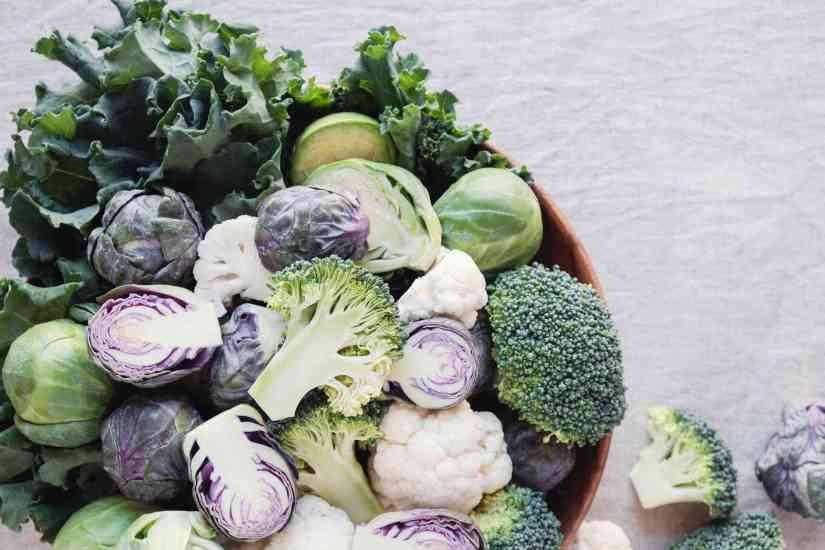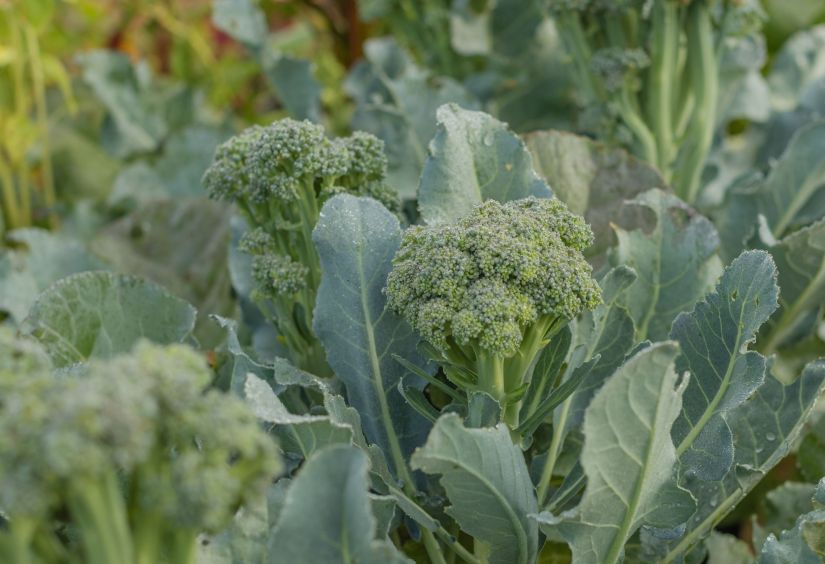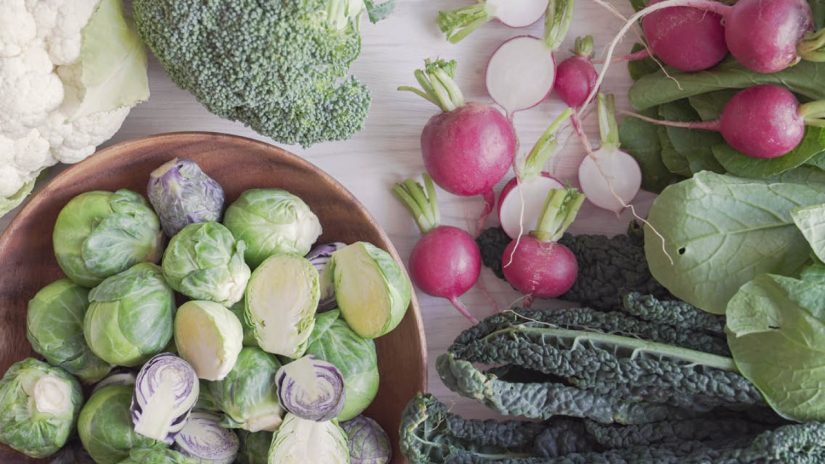In the realm of nutrition and wellness, cruciferous vegetables have emerged as true superheroes, offering a multitude of benefits for people seeking to maintain a healthy lifestyle.
These veggies, characterized by their unique cross-shaped flowers, encompass a wide array of options that can make a remarkable difference in your well-being.
In this article, we’ll delve into the world of cruciferous vegetables, explore their incredible advantages, and answer pertinent questions that might arise in your quest for a healthier you.
Contents
What Makes a Vegetable Cruciferous?

Cruciferous vegetables belong to the Brassicaceae family, which includes well-known members like broccoli, cauliflower, kale, brussels sprouts, and cabbage.
What sets them apart is their high content of glucosinolates, sulfur-containing compounds that contribute to their distinctive aroma and taste.
When these compounds are broken down during digestion or cooking, they yield biologically active substances with remarkable health-promoting properties.
The Healthiest Cruciferous Vegetable: A Nutritional Showdown

While all cruciferous vegetables offer remarkable health benefits, broccoli stands out as a nutritional powerhouse. Packed with vitamins C, K, and A, as well as fiber, it supports immune function, bone health, and digestion.
Additionally, broccoli contains sulforaphane, a potent compound associated with cancer-fighting properties. However, don’t underestimate the other members of the cruciferous family.
When it comes to choosing the healthiest cruciferous vegetable, it’s akin to selecting the star player of a winning team – each member contributes uniquely to your well-being.
Let’s take a deeper dive into some of the most popular cruciferous vegetables that have won the hearts and palates of countless individuals:
Broccoli

As the poster child of cruciferous vegetables, broccoli boasts an impressive nutritional profile. Rich in vitamin C, a powerful antioxidant, and vitamin K, essential for bone health, broccoli also contains fiber and folate, supporting heart health and overall well-being. The superstar compound, sulforaphane, gives broccoli its cancer-fighting reputation.
Cauliflower

With its mild flavor and versatile nature, cauliflower has become a star ingredient in many creative recipes. Packed with vitamin C and a variety of B vitamins, including B6 and folate, cauliflower supports immune function, cellular health, and metabolism. It’s also a great source of choline, which is important for brain health.
Kale

Dubbed a “nutritional powerhouse,” kale is renowned for its incredible nutrient density. Bursting with vitamins A, C, and K, as well as minerals like calcium and manganese, kale supports bone health, vision, and immune function.
Its high content of antioxidants, including lutein and zeaxanthin, promotes eye health and may help protect against age-related macular degeneration.
Brussels Sprouts

These mini-cabbages are loaded with vitamins and minerals, particularly vitamin K and vitamin C. Brussels sprouts also contain compounds that may play a role in cancer prevention, including glucosinolates and indole-3-carbinol. Roasting or sautéing them can enhance their natural sweetness and flavor.
Cabbage

Whether in its green, red, or Napa varieties, cabbage is a budget-friendly and nutritious addition to your plate. Rich in fiber and vitamin C, cabbage supports digestion, skin health, and immune function. It’s also a source of anthocyanins, which have antioxidant and anti-inflammatory properties.
Bok Choy

This Chinese cabbage is really important in Asian cooking. People love it because it tastes great and has a nice crunch. Bok choy contains high amounts of vitamin A, vitamin C, and vitamin K. This cabbage has special nutrients that make your bones strong, boost your immune system, and make your skin healthy.
Arugula

While perhaps less common on your plate, arugula offers a peppery kick and a wealth of nutrients. This leafy green is a good source of vitamin K and folate, and its natural nitrates may contribute to improved exercise performance and cardiovascular health.
Turnips

Both the root and the greens of turnips are edible and nutritious. The root is a good source of vitamin C and fiber, while the greens offer vitamins A, K, and calcium. Turnips are a versatile option that can be roasted, sautéed, or enjoyed in soups and stews.
Each of these cruciferous vegetables offers a distinct collection of nutrients and health advantages, making a single champion impossible to pick. The last benefit comes from including a variety of these vegetables in your diet.
Whether you’re roasting cauliflower, adding kale into a salad, or sautéing Brussels sprouts, you’re giving your body a rainbow of nutrients that will help you attain your health objectives.
Cruciferous Vegetables and Your Thyroid: The Connection Unveiled

A common concern regarding cruciferous vegetables is their potential impact on thyroid function. These veggies contain goitrogens, compounds that may interfere with thyroid hormone production when consumed excessively.
However, for most individuals, moderate consumption of cruciferous vegetables is unlikely to cause thyroid issues. In fact, their numerous health benefits far outweigh any potential concerns. If you have an existing thyroid condition, it’s advisable to consult your healthcare professional for personalized guidance.
Who Should Not Eat Cruciferous Vegetables?

Cruciferous vegetables are generally safe for consumption by individuals of various age groups and backgrounds. However, individuals who have a known sensitivity or allergy to any member of the Brassicaceae family should exercise caution or avoid consumption altogether.
If you experience digestive discomfort, such as gas or bloating, when consuming these vegetables, consider cooking them, as heat can help break down some of the compounds that may contribute to these symptoms.
Harnessing the Benefits: Why Cruciferous Vegetables Matter

Imagine your body as a finely tuned machine, and cruciferous vegetables as the fuel that keeps it running smoothly. These veggies may not wear capes, but their superpowers are undeniable, and they can make a real difference in your day-to-day life. Let’s break down why these cruciferous wonders deserve a place on your plate:
Cancer Fighters

Picture cruciferous vegetables as your personal defenders against the villainous cancer cells. They contain special compounds like sulforaphane and indole-3-carbinol that act as shields, helping your body combat the development of certain types of cancer, like breast, prostate, and colorectal cancer. Regularly enjoying these veggies is like fortifying your body’s defenses.
Heart Heroes

Just like a superhero team, cruciferous vegetables work together to maintain your heart’s well-being. They’re loaded with antioxidants that swoop in to fight off harmful molecules, reducing inflammation and keeping your blood vessels in tip-top shape. This means healthier blood pressure and a lower risk of heart problems, all thanks to your cruciferous allies.
Tummy Tamers
Think of cruciferous veggies as your digestion’s best friends. They’re chock-full of fiber that acts like a gentle broom, sweeping away unwanted stuff from your digestive system. This helps prevent bloating and keeps things moving smoothly, ensuring you’re not slowed down by digestive woes.
Bone Boosters
Your bones are like your body’s support system, and cruciferous vegetables provide the tools to keep them strong. Vitamins like K and C team up to keep your bones sturdy and resilient. This means you’ll be less likely to experience fractures or bone-related issues down the road.
Detox Dynamos
Think of your liver as the ultimate detox hero, and cruciferous vegetables as its trusty sidekicks. These veggies contain compounds that give your liver a helping hand in clearing out toxins and waste from your body. It’s like giving your liver a spa day, helping it function at its best.
Eye Guardians
Your eyes are the windows to your world, and cruciferous vegetables want to keep them crystal clear. Certain members of this veggie crew, like kale and Brussels sprouts, are loaded with nutrients that support eye health. They contain antioxidants that protect your peepers from the harmful effects of aging and screen time.
Energy Boosters
Just like a superhero gathering their strength, you need energy to conquer your day. Cruciferous veggies supply your body with essential nutrients that help convert food into energy. So, whether you’re hitting the gym, acing that presentation, or just enjoying life, these veggies have your back.
Immune Defenders
Your immune system is like a fortress protecting you from invaders. Cruciferous vegetables arm your immune cells with vitamins and minerals, making them ready to fight off any unwanted guests. A strong immune system means fewer sick days and more time enjoying life.
In the grand tapestry of nutrition, cruciferous vegetables stand out as vibrant threads that weave together a healthier you. From fighting off cancer to boosting your energy and keeping your heart happy, these veggies have an array of talents that can improve your quality of life.
Conclusion
Cruciferous vegetables are an invaluable addition to your diet, offering a multitude of health benefits that span from cancer prevention to cardiovascular support.
Whether you’re a fitness enthusiast, a health-conscious individual, or simply someone seeking to improve your well-being, incorporating these veggies into your meals can have a positive and lasting impact on your overall health.
